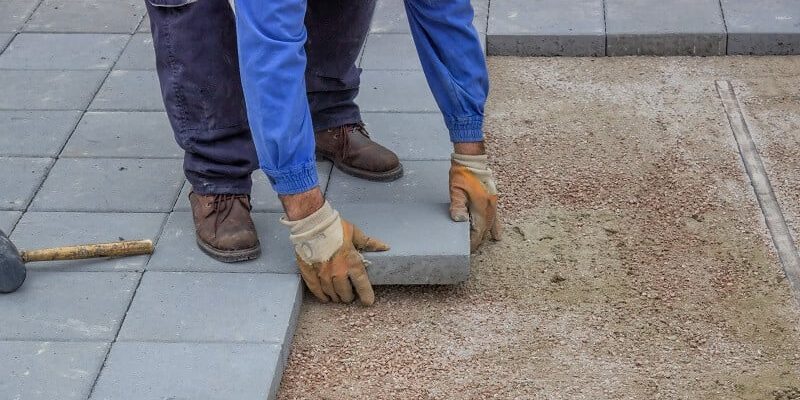When it comes to any construction or renovation project involving concrete, hiring the right professional is crucial. A reliable concrete contractor can make all the difference in ensuring the success and longevity of your project. In this comprehensive guide, we’ll explore everything you need to know about hiring a concrete contractor, from the qualities to look for to the steps involved in a concrete project.
Concrete is the backbone of many construction projects, and finding a skilled and trustworthy concrete contractor is paramount. Whether you’re planning a residential upgrade or a commercial venture, understanding the intricacies of hiring the right professional is essential.
Why Hire a Professional Concrete Contractor
Ensuring Quality Workmanship
One of the primary reasons to hire a concrete contractor is to ensure quality workmanship. Professionals bring experience and expertise to the table, ensuring that your concrete project is executed with precision.
Adherence to Building Codes and Standards
Building codes and standards are in place for a reason. Professional concrete contractors are well-versed in these regulations, guaranteeing that your project meets all necessary requirements.
Cost-Effectiveness in the Long Run
While it might seem cost-effective to undertake a concrete project yourself, hiring a professional concrete contractor can save you money in the long run. Their expertise minimizes the risk of mistakes that could lead to costly repairs.
Qualities of a Reliable Concrete Contractor
Experience in the Industry
Look for a concrete contractor with a proven track record. Experience in the industry indicates a level of expertise and reliability that is crucial for the success of your project.
Licensing and Certifications
A reputable concrete contractor should be properly licensed and certified. This ensures that they have met industry standards and are legally qualified to undertake your project.
Positive Customer Reviews and Testimonials
Customer feedback provides valuable insights into a concrete contractor’s reputation. Look for positive reviews and testimonials from past clients to gauge the contractor’s reliability and professionalism.
Understanding Different Types of Concrete Projects
Concrete projects vary widely, from residential endeavors to large-scale commercial undertakings. Understanding the different types of projects will help you choose a concrete contractor with the right expertise for your needs.
Residential Concrete Projects
For residential projects such as driveways, patios, and walkways, seek a concrete contractor with experience in enhancing outdoor spaces. Ask to see examples of their previous residential work.
Commercial Concrete Projects
Commercial projects like foundations and parking lots require a concrete contractor with the capacity to handle larger-scale endeavors. Verify their experience in managing commercial projects successfully.
Specialty Projects
If you’re considering decorative or stamped concrete, choose a concrete contractor with a portfolio showcasing their skill in these specialty areas. Not all contractors excel in these artistic aspects of concrete work.
The Importance of Proper Planning
No matter the scale of your project, proper planning is essential for its success. A concrete contractor should guide you through the planning phase, taking into account various factors that can influence the outcome.
Site Preparation Considerations
Thorough site preparation is crucial for the longevity of your concrete project. A professional concrete contractor will assess the soil condition, drainage, and other site-specific factors to ensure a solid foundation.
Design and Layout Planning
Collaborate with your concrete contractor on the design and layout of your project. They should be able to provide valuable insights based on their experience and help you make informed decisions that align with your vision.
Budgeting for the Project
A transparent concrete contractor will provide a detailed cost estimate, including materials and labor. Be wary of contractors who provide vague estimates, as this could lead to unexpected costs down the line.
Steps Involved in a Concrete Project
Understanding the key steps involved in a concrete project will help you communicate effectively with your chosen concrete contractor and ensure that the process runs smoothly from start to finish.
Site Excavation and Preparation
Before concrete can be poured, the site must be excavated and prepared. This involves removing any debris, grading the soil, and creating a stable base for the concrete.
Concrete Pouring and Curing
The actual pouring of concrete is a critical phase. A skilled concrete contractor will ensure that the concrete is mixed correctly, poured evenly, and properly cured to achieve maximum strength.
Finishing Touches and Cleanup
The finishing touches, such as smoothing the surface and adding decorative elements, require attention to detail. A reputable concrete contractor will also take care of the cleanup, leaving you with a polished and professionally completed project.
Common Challenges and How to Address Them
Even with careful planning, challenges can arise during a concrete project. Being aware of potential issues and how to address them will help you navigate the process smoothly.
Weather-Related Challenges
Inclement weather can impact the timeline of a concrete project. A flexible concrete contractor will have contingency plans in place and keep you informed of any delays due to weather conditions.
Potential Delays and How to Mitigate Them
Delays can occur for various reasons, such as permit issues or unforeseen complications. Choose a concrete contractor who communicates effectively and provides realistic timelines, taking potential delays into account.
Communicating Effectively with the Contractor
Clear communication is key to a successful project. Regular updates from your concrete contractor on the project’s progress and any potential issues will help you make informed decisions throughout the construction process.
Questions to Ask Before Hiring a Concrete Contractor
Before making a final decision, it’s essential to ask your potential concrete contractor key questions to ensure they are the right fit for your project.
Requesting a Portfolio of Past Projects
Ask for a portfolio showcasing the concrete contractor’s previous work. This will give you a visual representation of their capabilities and the quality of their craftsmanship.
Inquiring About Insurance Coverage
Ensure that your chosen concrete contractor has adequate insurance coverage. This protects both you and the contractor in the event of unforeseen accidents or damage during the project.
Obtaining a Detailed Project Timeline and Cost Estimate
A professional concrete contractor will provide a detailed project timeline, outlining each phase of the project. Additionally, they should offer a comprehensive cost estimate that includes all potential expenses.
DIY vs. Hiring a Professional Concrete Contractor
Pros and Cons of Each Option
While some individuals may consider tackling a concrete project themselves, it’s important to weigh the pros and cons. DIY projects may save money initially but can result in costly mistakes.
Risks Associated with DIY Concrete Projects
DIY concrete projects pose risks such as improper mixing, inadequate curing, and structural issues. Hiring a professional concrete contractor mitigates these risks and ensures a high-quality result.
When It’s Advisable to Hire a Professional
For complex projects, large-scale endeavors, or those requiring specialized skills, hiring a professional concrete contractor is advisable. Their expertise will ultimately save you time, money, and potential headaches.
Trends in Concrete Design and Finishes
Concrete design has evolved beyond traditional gray slabs. Stay informed about the latest trends in concrete finishes to add a touch of sophistication to your project.
Popular Decorative Concrete Options
From stamped patterns to colored concrete, decorative options abound. A skilled concrete contractor can provide insights into the latest trends and help you choose a design that suits your aesthetic preferences.
Sustainable and Eco-Friendly Concrete Practices
With environmental consciousness on the rise, inquire about sustainable and eco-friendly concrete practices. Some concrete contractors offer recycled materials or environmentally friendly additives for a greener project.
Emerging Technologies in the Concrete Industry
Stay ahead of the curve by exploring emerging technologies in the concrete industry. This could include advancements in concrete mixing, curing, or even smart concrete solutions that monitor structural health.
FAQs
1. Q: Why should I hire a professional concrete contractor instead of attempting a DIY project?
A: Professional concrete contractors bring expertise, experience, and the necessary equipment to ensure a high quality and durable result. DIY projects may save money initially but can lead to costly mistakes and structural issues.
2. Q: What qualities should I look for in a reliable concrete contractor?
A: Look for a contractor with experience in the industry, proper licensing and certifications, and positive customer reviews. These qualities indicate professionalism and a commitment to quality work.
3. Q: How do I determine if a concrete contractor is experienced?
A: Review their portfolio of past projects, inquire about the number of years they’ve been in business, and ask for references. A seasoned concrete contractor should be able to provide evidence of their experience.
4. Q: What types of projects can a concrete contractor handle?
A: Concrete contractors can handle a wide range of projects, including residential projects like driveways and patios, commercial projects like foundations and parking lots, and specialty projects such as decorative or stamped concrete.
5. Q: How can I ensure that the concrete contractor follows building codes and standards?
A: Choose a contractor with a strong understanding of local building codes and regulations. Ensure they have the necessary permits for your project and inquire about their commitment to compliance.
6. Q: What should be included in a concrete contractor’s cost estimate?
A: A comprehensive cost estimate should include materials, labor, potential additional costs, and a breakdown of expenses. It’s crucial to have a transparent estimate to avoid unexpected expenses.
7. Q: How do concrete contractors handle weather-related challenges during a project?
A: Professional contractors have contingency plans for weather-related delays. They will keep you informed about any adjustments to the timeline and take measures to protect the integrity of the project.
8. Q: What insurance coverage should a concrete contractor have?
A: A reliable concrete contractor should have liability insurance and worker’s compensation coverage. This protects both the contractor and the client in case of accidents or damage during the project.
9. Q: Can a concrete contractor assist with design and layout planning?
A: Yes, many concrete contractors offer design and layout planning services. They can provide valuable insights based on their experience and collaborate with clients to achieve the desired aesthetic and functionality.
10. Q: Are there environmentally friendly options for concrete projects?
A: Yes, some concrete contractors offer sustainable and eco-friendly practices, such as using recycled materials or environmentally friendly additives. Inquire about these options if you have a preference for a greener project.
Conclusion
In conclusion, hiring a professional concrete contractor is a crucial step in ensuring the success of your project. From the initial planning stages to the finishing touches, their expertise will make a significant difference. Remember to ask the right questions, stay informed about industry trends, and make a decision based on both quality and reliability.
Now that you’re armed with the knowledge needed to choose the right concrete contractor, take the next step toward turning your concrete project into a lasting and visually appealing reality. Your investment in a professional will pay off in the durability and aesthetic appeal of your finished project.







